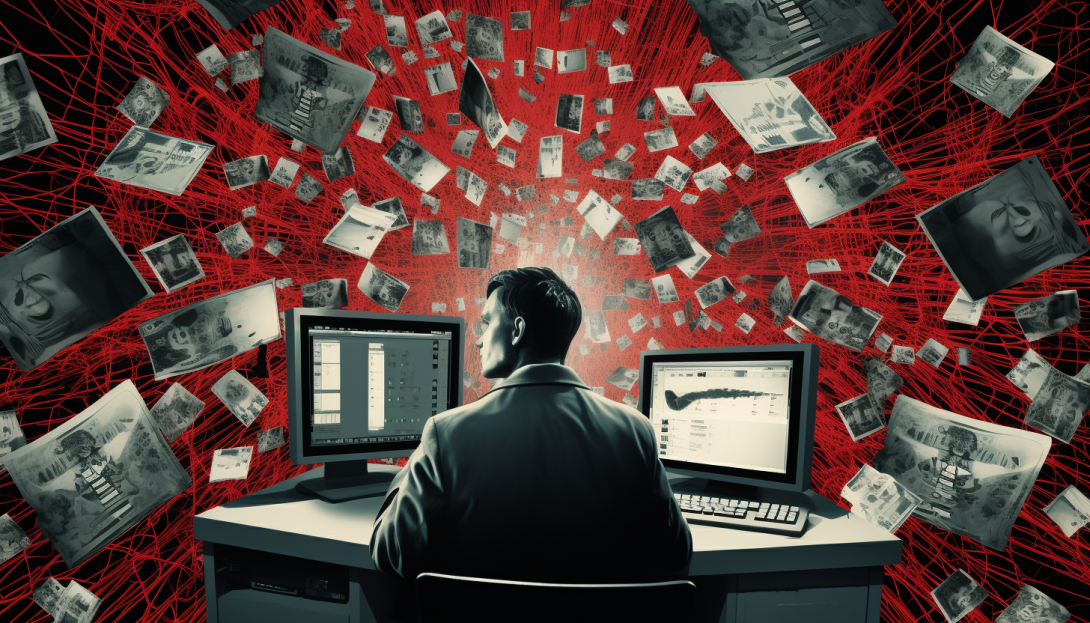
Recently, former Brazilian President Jair Bolsonaro was banned from seeking political office until 2030 for undermining the democratic process. [1] When announcing the ruling the presiding judge of Brazil’s highest court boldly declared that there was no tolerance for “criminal extremism attacking the powers of the state, fake news, disinformation to try to deceive voters.”[2]
What had happened? Bolsonaro had lost the election to Lula da Silva but refused to concede. Instead, he continued a huge disinformation effort he had already started on the campaign trail that questioned the reliability of the most commonly used voting machines; a claim that has been soundly rejected by independent observers ever since. Eventually, Bolsonaro even contested the outcome of the election on that basis.[3]
Bolsonaro's de-facto denial of the election results bears some clear similarity to the highly contentious campaign his political ally Donald Trump had launched in the United States after losing his bid for re-election to Joe Biden in 2020 (albeit Trump did not greatly emphasise alleged issues with voting machines).
In both cases, incumbent Presidents used the ‘bully pulpit’ to stoke public anger over elections they had lost by factually disputing their defeat at the ballot box.
Unfolding Riots
Interestingly, the presiding judge’s wording as quoted above directly alludes to criminal behaviour, which is a thorny issue when it comes to spreading false allegations. Whilst it is acknowledged by virtually all observers that the spread of disinformation can severely undermine liberal values and democratic principles, making false claims as such is not illegal. That being said, the spread of falsehoods may cross the boundaries of legality, especially if they are circulated to stir up trouble. More specifically, the incitement of certain forms of violence is listed as an offence in the EU’s Terrorism Directive.[4] Additionally, even if false allegations are confined to what is allowed under the law, such remarks might still – depending on the context – contribute to illegal activities, including in the form of violence.
Unfortunately, the most recent presidential elections in Brazil and the United States are a case in point. Not only did the highly aggressive rhetoric of Bolsonaro and Trump resonate with numerous of their supporters who hit the streets to protest against the transfer of power, such protests also turned violent very quickly.
In Brazil a right-wing mob stormed three government buildings, including the Congress, and reportedly caused significant destruction, amongst other things by setting fire.[5] In the United States the violence culminated in the infamous events on 6 January 2021. On the eve of the certification of Joe Biden's win by the US Congress a group of Trump loyalists, including some openly extremist alt-right networks such as the Proud Boys stormed the US Capitol where they clashed with the Police.[6]
The Current Situation - Dangerous Trends have not been Reversed
There are still no signs that the political tensions have been eased. The riots in Brazil were quite recent and are still a huge factor in the country's political discourse with pro- and anti-Bolsonaro activists offering strikingly different takes on the proceedings. The above-mentioned ruling of Brazil's highest court that banned Bolsonaro from running for office for two election cycles corroborates the lasting struggle to rein in the former President's inflammatory rhetoric.
Earlier this year Donald Trump, who has kept denying Biden's victory in 2020 to this day, announced his candidacy for President in 2024 and has a clear lead on his intra-party rivals. Pushback on his highly assertive rhetoric, including his remarks on the storm of the Capitol, from the Republican establishment has significantly decreased. In the aftermath of the incidents on 6 January the Republican Minority Leader in the Senate Mitch McConnell harshly criticised Trump as “practically and morally responsible for provoking the events” but recently he refused to comment on the US Department of Justice’s Special Counsel’s decision to make Trump a target in the investigation of the riots.[7]
The Need to Provide Law-Enforcement Agencies with Proper Tools
Given the persistent danger that riots will occur after highly contentious elections law-enforcement agencies need to be better equipped and prepared for the challenges they may be facing. The FERMI project is committed to filling this void by developing a whole range of tools that are aimed at stemming the tide of disinformation-induced crimes. With respect to violent proceedings like the ones above the Crimes Prediction Modeler that predicts the time, type and area where criminal activities are likely to unfold and the Community Resilience Modeler that assesses the capability of communities to resist disinformation efforts might be of particular help, as they can significantly improve the allocation of resources and inform the choice and implementation of other counter-measures.
---
[1] Julia Vargas Jones and Tara John, “Brazil’s Jair Bolsonaro barred from running for office for 8 years,” CNN.com, June 30, 2023, https://edition.cnn.com/2023/06/30/americas/bolsonaro-court-abuse-of-power-ruling-intl-latam/index.html.
[2] Quoted in: Jones and John, “Brazil’s Jair Bolsonaro”.
[3] Associated Press, “Defeated president contests Brazil election,” POLITICO, November 22, 2022, https://www.politico.com/news/2022/11/22/brazil-election-contested-bolsonaro-00070589.
[4] European Union, Directive (EU) 2017/541 of the European Parliament and of the Council of 15 March 2017 on combating terrorism and replacing Council Framework Decision 2002/475/JHA and amending Council Decision 2005/671/JHA, accessed July 25, 2023, https://eur-lex.europa.eu/legal-content/EN/TXT/?uri=celex%3A32017L0541.
[5] Elizabeth Dwoskin, “Come to the ‘war cry party’: How social media helped drive mayhem in Brazil,” The Washington Post, January 9, 2023,, https://www.washingtonpost.com/technology/2023/01/08/brazil-bolsanaro-twitter-facebook/.
[6] Matthew Kriner and Jon Lewis, “Pride & Prejudice: The Violent Evolution of the Proud Boys,” CTC Sentinel 14, no. 6 (July/August 2021), https://ctc.westpoint.edu/pride-prejudice-the-violent-evolution-of-the-proud-boys/.
[7] Alexander Bolton, “McConnell declines to say whether Trump should be charged criminally for Jan. 6,” TheHill.com, 19 July, 2023, https://thehill.com/homenews/senate/4106187-mcconnell-declines-to-say-whether-trump-should-be-charged-criminally-for-jan-6/.